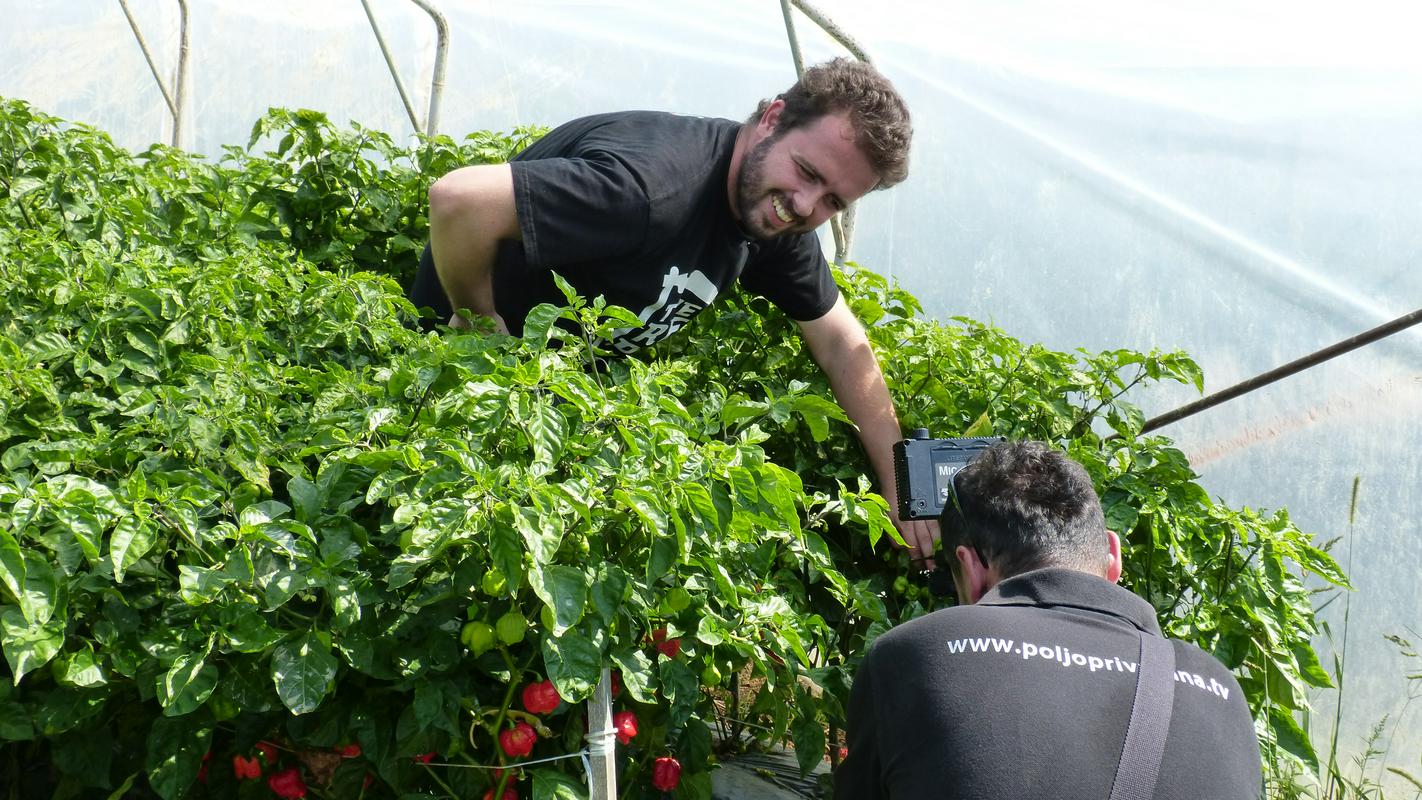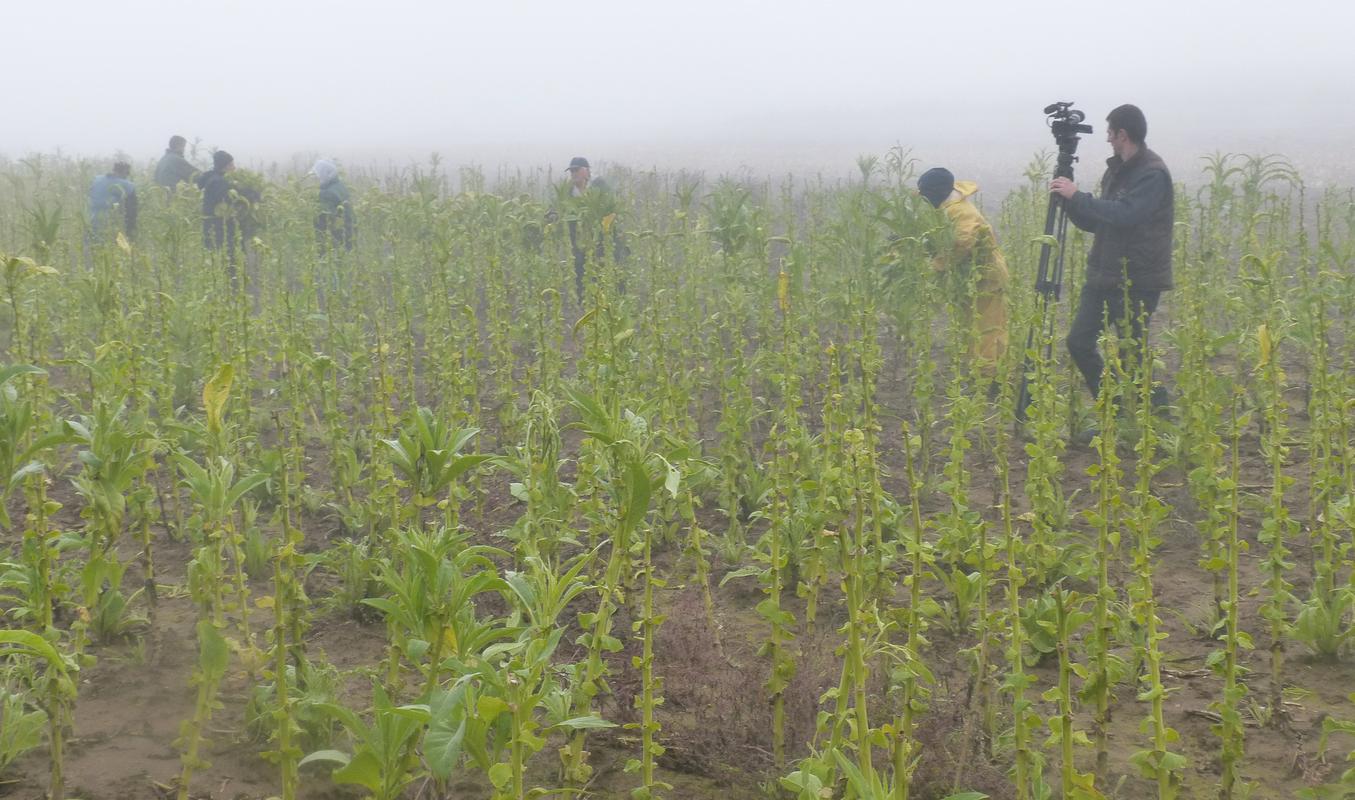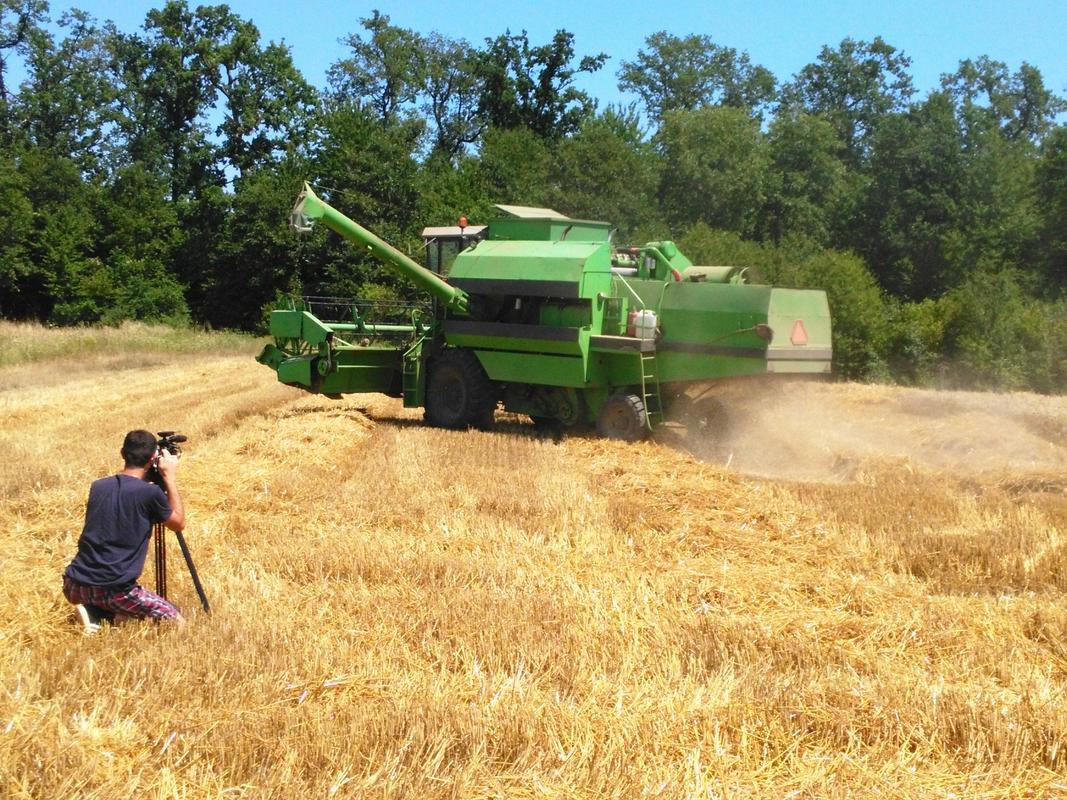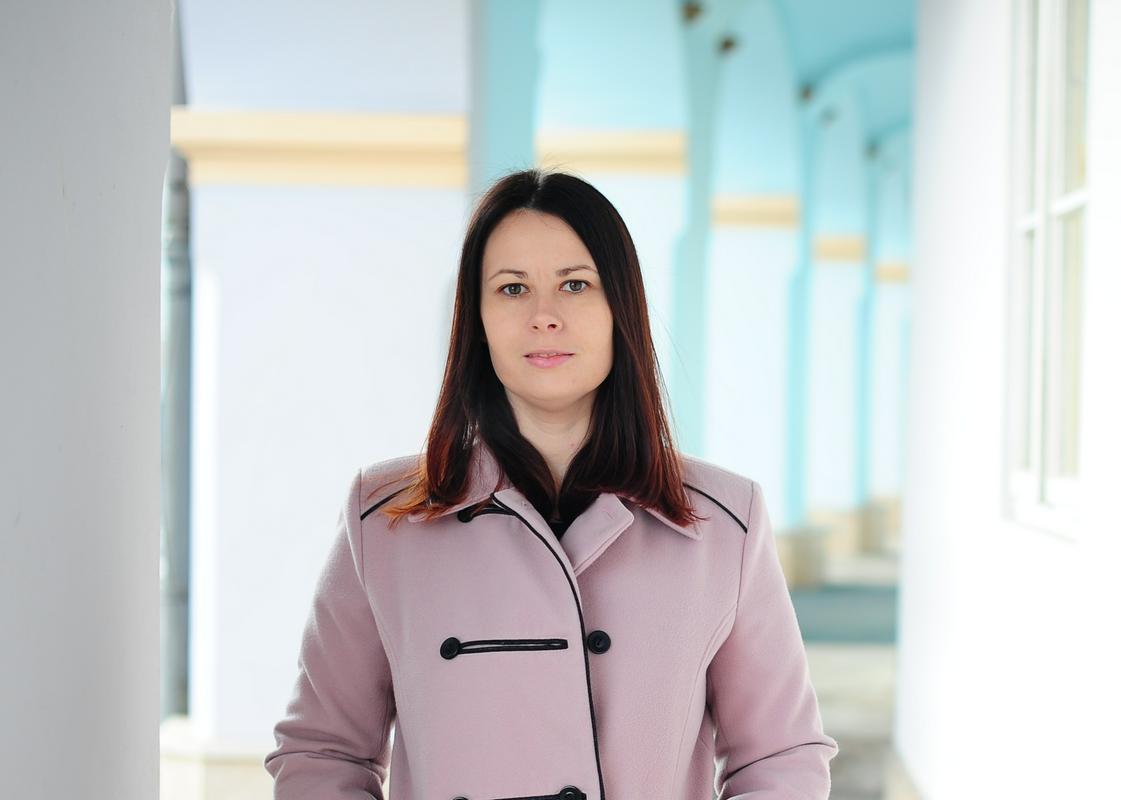


Poljoprivredna TV started its work five years ago in Požega. This is the first and only specialized Croatian agricultural television, which brings a programme dealing with agriculture, rural development and village. Every day we bring news and shows with topics such as farming, fruit growing, viticulture and other branches within the agricultural field. We socialise with people from the villages, visit farms and bring back interesting stories. We learn about the problems farmers encounter and we seek solutions to these problems. The backbone of our programme is the cooperation we have with prominent experts in agriculture, so tips and advice are very important to us.
Next to agriculture, we also pay attention to nature, customs, traditions, a healthy life and diet. Some of the topics that we dealt with previously are the preparation of specialty dishes, wine production, agriculture field work, animal care, village life...
There are many small farmers who are very successful but their stories are unfortunately unknown. Our goal is to make these kinds of stories known to the public, and in this way motivate our viewers regarding the production of different types of crops, just like they motivated us on Poljoprivredna TV.
In our programme, you can watch shows from every region in Croatia, but also from our neighbouring countries of Bosnia and Herzegovina and Serbia. Agriculture is an extremely important sector in Croatia, so viewers' interest in our channel is not that surprising. We are always happy to hear positive comments, and these comments encourage us to work even harder.
Where did you see and find your role in Young Village Folk stories?
The Young Village Folk project is an excellent opportunity to present the activities of young Croatian farmers to their peers in their homeland and also all across Europe. In our country you can see numerous successful examples of agricultural production. The trend is also positive as the EU average of young farmers within the farming community is at 7 percent, while in Croatia it is 9 percent. In spite of that, there is still room for progress, so we hope that we will, through our stories, encourage young people into the agricultural sector and merging beyond our borders. Also, I believe that Croatian farmers will find stories from other countries very interesting. It would be great to see, after the international workshop, which is a part of this project is completed; the collective work of young producers from Croatia, Slovenia and Finland.
Within the project we will get a great opportunity to find out more about agriculture in Croatia, but you are reaching also a targeted audience in Bosnia and Herzegovina and also in Serbia. What is the situation of agriculture in those regions within the Balkans?
Serbia recorded the export of agricultural products to the amount of 2.9 billion euros, which is the highest in their history. It is the world's largest exporter of raspberries and the tenth largest exporter of corn. Bosnia and Herzegovina hasn't got a national agricultural policy, but rather an entity policy and it is growing in milk, fruit, vegetables and meat production and it is exporting more and more products to Turkey and Arab countries. Serbia has exported mainly to Russia. These two countries aren't members of the EU and they benefit from the closed off borders so they are protected against the import of large amounts of food. Serbia has reversed this trend and is exporting more products to Croatia than it is importing. Unfortunately, our country is recording higher import percentages and a deficit in goods trade of almost one billion euros; while Serbia is recording a surplus.
It is interesting how values are changing in time and through generations, how the value of farming and food also changed through time and is still changing, globally. What would be today's picture of Croatian nation values, when it comes to agriculture, farming, food. Where is the awareness and what changed through recent history, would you say?
There are 165,167 family farms registered in Croatia. 82,497 farm owners are older than 60, while there are only 16,372 owners younger than 40.
As I have already mentioned, Croatia is importing more and more food and it has become a food dependent country. Almost half the food comes from imports. In the first three months of this year we have imported 20 million euros worth of food products, more than last year, totalling 600 million euros. The highest increase has been recorded in the import of cereals, live stock and milk.
The number of domestic milk producers has dropped for almost 60 percent in the last four years, while there has been a 281 percent increase in milk imported last year than in 2012.
The open borders of the EU have made the export of food products easier and it has been increasing in the last years. In the period of 2013 to 2016, the export rates have increased by 579 million euros. Last year we achieved the highest value in the exports of sugar, chocolate, fresh fish, corn and wheat. By entering the EU, Croatia has recorded a growth in exporting oil, beef and pig meat.
The Ministry of agriculture, production organisations and many other associations encourage citizens to buy homemade products through various acts, which generally result in higher producing activity. More and more farmers realise the importance of refinement and they decide on the production of refined products and give up on agricultural crops. Homemade eco products are also highly valued. Since 2010, the lands for ecological production have been increased by 300%. The total plant production takes place on around 90,000 hectares of land, which is around 8% of the total farm land.
Can youth's interest, innovation and progressiveness be found in Croatia? What kind of stories we will see from your side in the next few months?
Young people in Croatia realise that they cannot work in agriculture in the way their families did 20 or 30 years ago. They are aware that today a farmer has to be the manager of his/her farm. In our stories, we are going to present the Croatian young farmers association AGRO, whose members emphasize the importance of merging, joint work and mutual help. On the topic of marketing in agriculture we talked with Goran Vrabec, a producer of hot peppers, who started his own brand Volim ljuto (I like it hot) and achieved great success. In the last five years 200,000 people have left Croatia but we bring you a story of a young married couple who, despite excellent opportunities to work in Austria, decided to stay in Slavonia and plant the biggest plantation of quinces in Croatia. We visited the best young Croatian farmer in 2017, who deals with cultivation of the berry fruit...
Let's start this project also with sharing some thoughts about growing foods and the future. As an editor-in-chief, what would you say are the initiatives that are showing us a path to the future?
I believe that the balance between ecology and agricultural production is essential. As a country without heavy industry, Croatia has a huge potential for the development of ecological agriculture. People are aware of the need for consumption of eco foods, and producers are aware of the lower quality and degradation of soils due to pesticide usage. The preservation of flora and fauna, water, atmosphere and soil fertility is something we should all consider together.



































































